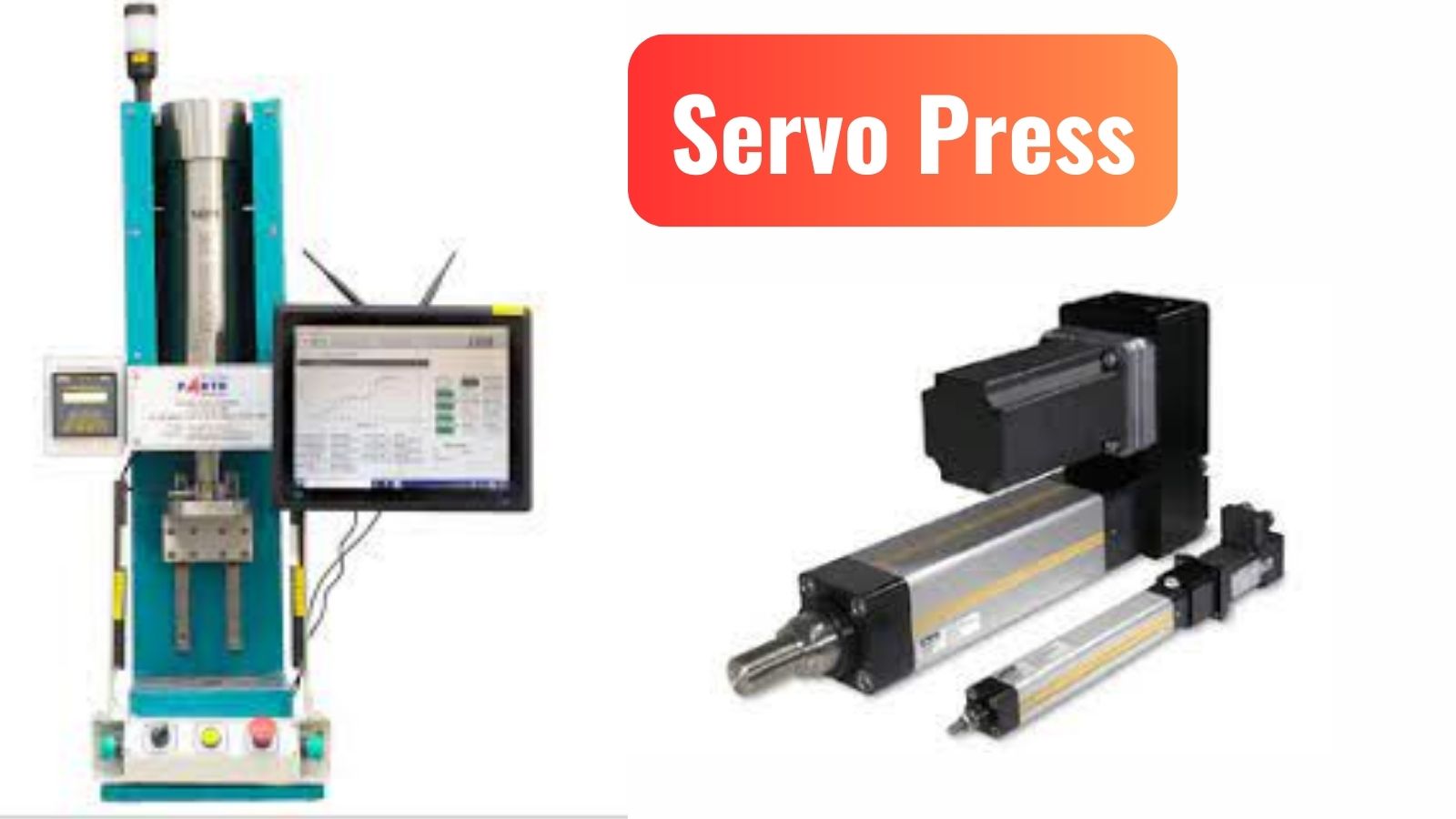




Press machines are employed in mass production, such as in the automobile sector for cutting parts. Extreme force is used by the machines to stamp, cut, shape, and set metallic components.
Traditionally, factories have employed hydraulic and mechanical equipment, but with the development of technology, many are now using servo presses.
Press machines that operate mechanically rely on a flywheel, clutch, brake, and crankshaft. In order to create the force required to crush and shape metal, hydraulic presses employ hydraulic fluid. However, the gear in servo presses that drives the press's slider is driven by a motor.
Every press type has pros and cons, however servo motors bring together many of the advantages of several machine types into one.
We must first examine how servo motors vary from mechanical and hydraulic press machines in order to comprehend how they operate and the benefits they offer. The primary factors for comparison are stroke length, cost, accuracy, speed, and adaptability.
To maximize productivity in mass production, speed is required. Flexibility, which is determined by slide velocity—the speed at which the press's slide moves—is closely tied to the machine's speed. Slide velocity flexibility allows the press to do a wide range of activities.
To guarantee precision, accuracy and dependability are crucial. Variability in the machine's stroke length is advantageous for increased adaptability. The machine's speed range is determined by its stroke length; the longer the stroke, the slower the machine will be.
Read this blog also = (https://inerrant.co.in/revolutionizing-industries-across-india-the-power-of-press-machines)
Mechanical Presses Conventional mechanical presses are capable of operating at higher speeds, particularly when producing somewhat flat surfaces with less complicated assembly needs. They are easier to set up and have a preset stroke length and fixed slide velocity in a single cycle. Conventional mechanical presses are quite accurate and dependable, and they have lower startup expenses.
Presses using Hydraulic Action A mechanical press can operate at speeds that a hydraulic press driven by hydraulic fluid cannot match. It takes longer since it need time to gain momentum. It works well in more complex processes that don't depend on faster production speeds and require large amounts of resources. The sliding velocity and stroke length of hydraulic presses can be adjusted. Although their starting expenses are modest, they also have decreased repeatability and precision.
Servo Presses A high-capacity electromechanical motor that transforms electrical energy into mechanical power produces power for a servo press. Servo motors have the flexibility of a hydraulic press while being able to match the pace of mechanical presses. For example, different jobs at different speeds can be programmed for the stroke length, speed, and slide velocity. Servo motors are well-suited for jobs requiring exact control; they are frequently employed in robotics and automation, where the motor interprets controller signals and carries out instructions.
In mass production, precision and speed are essential. Speed and flexibility are issues with hydraulic and mechanical systems, particularly when executing tasks that call for a shorter cycle time or more stroke flexibility. A press machine's flywheel has a maximum number of strokes in a minute (SPM) that it can handle. The flywheel is more vulnerable to damage when the SPM rate is exceeded. Sometimes the quality will suffer if the SPM speed is increased since there are pieces that can only be built so quickly.
These problems might be resolved by equipping a mechanical press with a servo-driven motor. A mechanical press can be made hybrid by adding a servo motor, which allows the press to open and close swiftly while maintaining its initial speed. In this manner, the press machine will draw power from the press's retrofitted servo motor drive and mechanical flywheel. The servo motor drives the motion of the slide, but the flywheel still presses metal in the same way.
Inerrant Robotomation Pvt. Ltd.: Servo Presses for Efficient and Precise Manufacturing Across India. Inerrant Robotomation, a leading manufacturer of industrial automation equipment, offers high-quality servo presses designed to enhance your manufacturing efficiency and precision. Available across India, these innovative presses cater to diverse industries, including automotive, aerospace, electronics, and more.